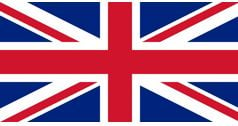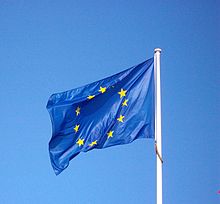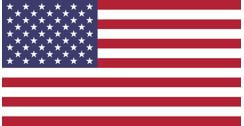
COVID-19 pandemic has not only had a catastrophic effect on the health of many people around the world but also on the world’s economy. There are no exceptions: all countries have felt the wrath of the coronavirus outbreak. In February 2020 the US had one of the lowest unemployment rates in its history: 3.5%.
During the pandemic, this value went up as high as 14.7% in April. This equates to 23.1 million people out of work. In May the unemployment rate improved, going down to 13.3% and as of June, it stands at 11.1%.
The British economy, like many other economies, experienced a sharp drop in GDP with analysts from PwC projecting a GDP growth in between -10% to -13% for the rest of the year. Due to this, the Bank of England has said that this could turn into the UK’s worst recession since “Great Frost” which happened over 300 years ago.
In the EU, the countries have been affected by the pandemic with different degrees of severity. The regions that heavily rely on tourism experienced the largest hit. During the peak of the pandemic video streaming services such as Netflix and YouTube were asked to reduce the amount of bandwidth used to decrease the strain on the internet. Overall, the economic impact of the COVID-19 can be summarised in the following bullet points:
- Sharp rise in unemployment
- Decline in consumer activity
- Collapse of the tourism and hospitality industry
- Stress on supply chains
With the current situation, national banks of many countries have urged the governments to provide support to the businesses in need. Today we are going to look at some of the government programs that have been implemented so far.
UK

The British government has introduced two loan schemes to help businesses during these hard times. The Coronavirus Business Interruption Loan Scheme (CBILS) was introduced on 23 March 2020 and the Bounce Back Loan Scheme (BBLS) was put into place on 27 April 2020. The schemes are managed by the British Business Bank and target small and medium enterprises severely affected by the pandemic.
The schemes define SMEs as businesses with an annual turnover below £45 million. The CBILS criteria and BBLS criteria to be eligible for the loan are similar. The key operations of the company must take place in the UK and businesses from the following sectors are not eligible for the loan:
- State-funded primary and secondary schools
- Public sector bodies
- Banks, insurers and reinsurers
The main difference between the two schemes is the size of the loan. From BBLS the maximum amount of money that can be borrowed is £50,000 while for CBILS the amount can be as high as £5 million. Due to this the UK government guarantees 100% of the BBLS loan to the lender while for CBILS it is “only” 80%.
To apply to any of those schemes the business must contact one of the accredited lenders of the loan directly. The first 12 months of each loan are free after which there is an interest rate. BBLS has a fixed annual interest rate of 2.5% while CBILS interest rates are negotiated with the lender.
EU

The EU has announced the Coronavirus Response Investment Initiative which will provide €36 bn investment package to its’ member states. The package is separated into two parts: €8bn of liquidity will be given instantly to the members with an extra €29bn available if all €8bn are used. The EU strongly suggests that these funds should be primarily spent on healthcare, small businesses and short-term employment schemes.
Countries within the EU have also launched their own independent programmes. The German government have introduced “Corona-Schutzchild” (Corona-shield) package – largest aid package in German history.
To finance this massive package, the German government took out €156bn in loans. The EU has also approved two Spanish guarantee schemes which are set to reduce the risk involved in issuing loans to the businesses that have been severely affected by COVID-19 and may not be able to repay the loan before a given deadline. It also provides liquidity for the companies so that they can continue with their operations.
US

US Small Business Administration (SBA) is the main government agency that gives support to entrepreneurs and small businesses. During the pandemic, it announced four programs to help the companies in need. Those programs were established under the CARES Act. and they are:
- EIDL Loan Advance
- SBA Express Bridge Loans
- SBA Express Bridge Loans
- SBA Debt Relief
The programs give different types of help to the company depending on the programme but it can be loan forgiveness for retaining employees, debt relief for small businesses or loans up to $10,000 for businesses affected by the coronavirus outbreak.
Interesting related article: “What is a Recession?”

